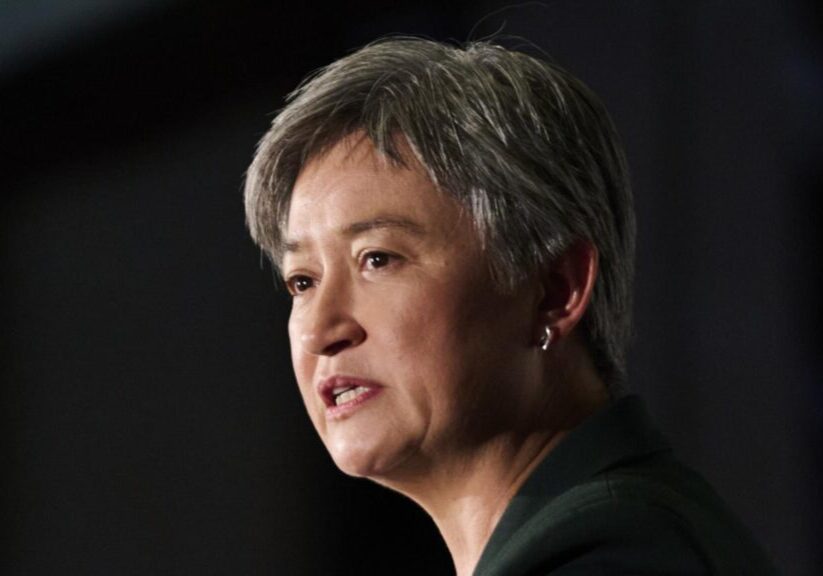IN THE MEDIA
Bloodbath blurs war truths
Jul 25, 2006 | Bren Carlill
Bren Carlill
Courier Mail, July 25, 2006
Amidst the front-page photos of bleeding children, it’s difficult to find clarity regarding the conflict raging in Israel and Lebanon.
We all know the spark that set the region alight – an unprovoked Hizbollah kidnapping of Israeli soldiers under the cover of missiles fired at Israeli cities. This was preceded by a Hamas-led attack from Gaza, which also involved kidnapping and rockets fired.
The depressing sight of dead and injured civilians has since helped blur the reasons behind the violence.
What’s going on? More importantly, why?
The answer is found in Teheran, Damascus, Beirut and Gaza, and with the historical context.
Israel entered Lebanon in 1982 for the same reason the area is now engulfed in violence – a foreign-funded terrorist organisation (back then it was the PLO) had set up a mini state in southern Lebanon and was using it as a launching pad for killing Israelis.
Unfortunately, the departure of the PLO at Israeli hands saw the entrance of another group. Formed by 1500 Iranian soldiers, Hizbollah has been funded and trained by Teheran ever since. A UN observer mission – created four years before Hizbollah – has observed Iranian and Syrian arms pour into Hizbollah’s hands but done nothing.
Iran flew rockets and other weapons – to the tune of a $100 million each year – to Damascus. Syria would then truck the arms across the border to southern Lebanon.
Lebanon didn’t interfere because it couldn’t – until last year. Syria had occupied most of Lebanon from 1975 until last year, and effectively controlled every government decision coming out of Beirut. Why were Syria and Iran so anxious to help Hizbollah? It was a way of getting a proxy army to make Israel bleed without being held directly responsible.
This arrangement has been very useful for them.
Iran has come under increasing international scrutiny due to its illegal attempts at developing nuclear weaponry. It is no coincidence that the Hizbollah attack came just three days before the G8 were due to discuss Iran’s WMD ambitions.
The attacks from both Gaza and Lebanon were across international borders. They were from unoccupied lands. Israel withdrew from every inch of Lebanon in 2000 – the UN verified the move and had hoped that Hizbollah would disarm.
Likewise, Israel voluntarily removed every last soldier and civilian from Gaza last year, and has declared as policy its wish to leave most of the West Bank.
Instead of being met by reciprocal peaceful gestures, Israeli cities have been subjected to over 1000 rocket attacks coming out of Gaza. Tragically, this number was dwarfed by the 2000 rockets sent from Lebanon in a single week.
But if Israel is the victim of so many attacks, why is the civilian death toll so disproportionate?
The answer is simple. Egypt bombed Tel Aviv in 1948. Jordan shelled Jerusalem in 1967. Iraq fired SCUD missiles at Tel Aviv and Haifa in 1991. Hizbollah has been firing rockets into Israeli towns since the ‘80s; the Palestinians since 2002.
Because of these constant attacks, Israel developed an excellent civil defence system. Air raid sirens exist throughout the country. Apartment and office buildings have communal bomb shelters. School children have missile attack drills like their counterparts in the West have fire drills.
It’s a sad reflection of the threat Israel has lived under for 60 years, but it’s also the primary reason that so few Israeli civilians have died in the last couple of weeks.
But what of the Lebanese?
Israel is destroying Hizbollah headquarters, its rocket launchers and as many weapon caches it can find. Unfortunately, and in complete violation of all the relevant international laws (such as the Geneva and Hague Conventions), Hizbollah has situated these sites in the middle of residential areas, such as in South Beirut and in towns and villages throughout southern Lebanon.
That left Israel with an ogre’s choice. Does it leave Hizbollah the ability to rain missiles down on Israel’s civilians at its leisure, or does it destroy Hizbollah infrastructure, knowing that innocent Lebanese civilians will die as a result?
Despite absorbing dozens of cross border Hizbollah rockets and kidnapping attempts since its withdrawal, Israel chose the first option – it did nothing.
Now, after six years of waiting for Hizbollah to disarm, Israel has chosen the second option. But before bombing runs it scatters leaflets warning civilians to leave – even though this enables Hizbollah fighters to flee at the same time.
When Hizbollah has had its ability to function dramatically reduced, Lebanon will have the ability to fulfil its obligations under international law and disarm Hizbollah (as the UN Security Council has demanded on numerous occasions).
And that’s the key to regional peace. For too long, the Israeli, Lebanese and Palestinian people have had their fates tied to the murderous desires of a handful of terrorist groups. As long as these groups are able to set the agenda of what happens in the region, innocent civilians will die.
When Israel has destroyed Hizbollah infrastructure, and when Lebanon has deployed – for the first time since 1975 – its troops to its borders, then and only then will there be a secure future for the Israel-Lebanon border and the people who live either side.
Bren Carlill is a policy analyst at the Australia/Israel & Jewish Affairs Council
Tags: Iran











